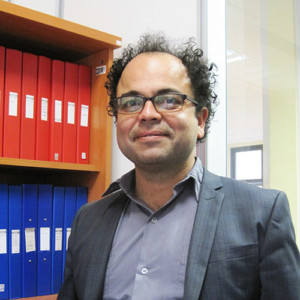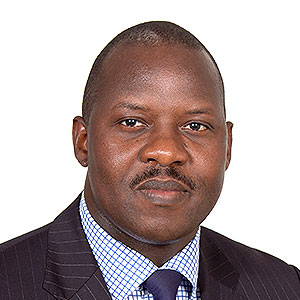Question: What can be the role of collaborative mechanisms and smart technologies in promoting smart civic engagement?
What can be the role of collaborative mechanisms and smart technologies in promoting smart civic engagement? – CLOSED
This discussion is now closed. Thank you for your participation.
Moderators:
-
 Claudio Torres Slum Upgrading Consultant, Housing and Slum Upgrading Branch. UN-Habitat
Claudio Torres Slum Upgrading Consultant, Housing and Slum Upgrading Branch. UN-Habitat -
 Pireh Otieno Human Settlements Officer, Urban Basic Services Branch - UN-Habitat
Pireh Otieno Human Settlements Officer, Urban Basic Services Branch - UN-Habitat -
 Kulwant Singh Regional Advisor - UN-Habitat
Kulwant Singh Regional Advisor - UN-Habitat -
 Marcus Mayr Urban Planner, Climate Change Planning Unit, UN-Habitat
Marcus Mayr Urban Planner, Climate Change Planning Unit, UN-Habitat -
 Edmundo Werna Head of Unit at Sectoral Policies Dept. ILO
Edmundo Werna Head of Unit at Sectoral Policies Dept. ILO
What can be the role of collaborative mechanisms and smart technologies in promoting smart civic engagement? – CLOSED
Thank you for making this dialogue possible. We are seeing increasing use of ICTs in Ghana (especially mobile phones; this research shows that use of social media and SMS is very significant), and we are leveraging this to make our cities better. The World Bank actually showcased us in “Ghana: Making Cities Smarter through the use of ICTs”. As you know, a lot of our services in our cities are provided by local governments, but delivery relies a lot on the private sector, and the project Taarifa is an app that helps monitor service delivery. Youth are also getting more involved, which is important for a country where at least 60% are below age 35. Ybridge is be a good example of how youth are using ICTs to be involved in local governance (see news on its launch). How we do ensure that these efforts continue and help make our cities and communities smart?
Thank you for your input, Baaba, and for sharing the info on Ghana. The World Bank feature provides good examples of smart use of smart tech to make Accra work smarter. ICTs and smart tech play a big role in making cities run efficiently and effectively. The discourse on smart cities in fact is a great deal about the use of smart technology. But technology alone cannot take us where we need to be, as the story you shared showcases in fact. We need strategic policies and efforts informed and shaped by the people who call the cities their home. Health and other services are not automatic results of access to smart technology; they have to be made real through policies and programmes. Smart technology used in strategic ways, as part of those policies and programmes, are impactful indeed. And it is always helpful to point out approaches that work (thanks for sharing info on Ybridge and Taarifa!).
Civic engagement is very crucial in building smart cities, and your example shows how local governments are greatly assisted by data and information on what their citizens need. It also points to how citizen monitoring and feedback “help make local governments become better service providers.” You noted key stakeholders: youth and the private sector. Would be interesting to see how Accra builds on this engagement, as innovative partnerships are playing out in smart cities efforts. The Tel Aviv dialogue would be very helpful in helping the global community think through how we ensure these efforts continue and remain focused on priorities voiced by citizens.
Keep engaged in the urban dialogues!
Colleagues, some of the comments and suggestions posted here reminded me of an approach launched by the Shack and Slum Dwellers International. They have made a really interesting and effective use of smart tech to get the voices of the urban poor heard, and to enable their engagement in urban planning and service delivery. By collecting and providing data on the needs, conditions and views of the urban poor, they are helping establish the urban poor as partners in building inclusive and resilient cities. These resonate in efforts that establish civic engagement as key in the Tel Aviv model.
Would like to know more examples and views from other cities. We note open data, crowd-sourcing, e-government, m-governmenace, and such efforts everywhere. Anyone directly involved in efforts? Would greatly appreciate knoweldge you can share. To members of urban communities, what are your views on these smart approaches?
The role of collaborative mechanisms and smart technologies is to ensure communication regardless of distance. It also solves the problems of communication gaps between the city and its citizens.
Thank you for your input, Mary. So pleased to see Nigeria in this dialogue! Especially as the urbanization and ICT/telecom trends in the country are on the upswing. We did a quick scan of innovative use of ICTs to engage citizens in Nigeria awhile back (needs updating), and we noted very interesting efforts focused on curbing corruption, enhancing public engagement with the police, and enhancing citizens’ participation in public processes. The government has a national e-government strategy, and Nigerians are getting more and more connected, so we look forward to seeing more examples coming out of rapidly urbanizing Nigeria.
All sectors are stakeholders in the sustainable development of countries and in building smart cities. Thank you, AMPION, for this insightful and concrete input to the urbanization dialogue. Greatly appreciate the perspectives and contributions from CSOs, entrepreneurs, social innovators, foundations, and the business community all working together. Your collaboration and approach are very innovative; they underline the role of social collaborative mechanisms (along with the digital) in building smart communities and cities.
Tel Aviv, which is hosting this first of the series of cities dialogues, has a lot of examples of how they use smart tech to engage citizens, and your contribution provides a view from another region. Your focus on youth and the attention you give to engaging stakeholders (in Africa and beyond) highlight key points for consideration in the new urban agenda. The youth demographic in the region (and in the world) is very significant (1.8 billion and rising fast). How you harness their potential and engage them in developing local solutions, as social innovators, is deeply interesting (improving health outcomes, improving livelihoods and lives, engaging the marginalized, etc.).
You have highlighted really key points in making urbanization inclusive. Access to information is a pillar of inclusive governance, and equitable access to basic services is crucial in making cities and communities livable and sustainable. Your examples showcase how smart technologies can help all this happen, but you reminded us that impact on the lives of inhabitants is, as you noted, really the heart of it. It is not about mart technologies per se, but how smart we are in our use of them. For significant impact, scaling up what works, as you noted, is important, and that requires focused support. What kind of support are you seeing as crucial?
And, thank you for the pictures! Please keep engaged in the urban dialogues. It would be interesting to see how your approaches and efforts help flesh out all the other areas of the new urban agenda.
Technology has an important role in civic engagement, but only if cities make sure that everyone has access to the information and skills needed to effectively use it.
IFLA, the International Federation of Library Associations and Institutions sees an important role for civic and public spaces, including libraries, as an important means of supporting civic engagement. As stated in the Lyon Declaration on Access to Information and Development signed by over 580 organisations, access to information helps everyone in society to take part in decision-making and participate in an active and engaged civil society.
Cities can support civic engagement by supporting existing, funded institutions like libraries. For example, by including libraries as part of plans for regenerating cities, in the development of new cities, and as providers of eGovernment services, skills training, public space and ICT access.
Libraries make Internet access available to the community at no or low cost. In many countries, public and educational libraries are the major or only providers of such access. Libraries support decision making and civic engagement by providing access to information, research and open data. Libraries support access to research, and the right to reuse research and data to create new knowledge.
For more examples we have cross-posted to the second discussion question.
Thank you, IFLA. You have put across a very good point for deliberation in the Habitat III processes. Libraries indeed play a major role in cities’ social, cultural and civic life. They also have in fact become, in some places, the main source of various services as you noted, and the space where people can engage on public issues and in decision-making processes (and access to information is necessary for this).
The Global Libraries programme comes to mind as example, also for how organizations like yours closely collaborate with governments, communities, and the development community to make civic engagement real. But, as you noted, technology alone does not make civic engagement automatic. Strategic efforts are needed to make sure relevant information is available, everyone has access to that information, and everyone has the skills to use the technology.
Look forward to IFLA’s continuing engagement in the shaping of the New Urban Agenda. Thank you again!

 16012819443_3eecee9091_z.jpg
16012819443_3eecee9091_z.jpg
The first and foremost aspect of civic engagement is to know the SCALE & TYPE of engagement..
At the cluster level consisting of around 500 Households, the civic engagement can start with
At the community level engagement can start with weekly meetings of the 5 to 6 cluster leadership, that are part of the community for
At the neighbourhood level, the citizens need to hire urban planner ( pro bono if possible) and other volenteer professionals to
I have perceived the above mentioned scale and type of engament using existing modes of communication and technology for a neighbourhood of 40000 persons in bangalore India in the take-off stage.
At the pretakeoff stage WE NEED TO UNDERSTAND OUR RESIDENTS NOT IN TERMS OF JUST DEMOGRAPHIC NUMBERS . We need to undertake Urban Morphology Studies for a planned future
I am a resident of bangalore, India since 2005. The city of Bangalore is slowly losing its scale, character and ability to maintain a sense of continuity of fundamental values and security to exist in a good living environment. The city has failed to maintain settlement character due to reduced harmony between the built environment and the people, necessary for a balanced community of the various socio-economic groups. Co-operation within, lack of fraternity & tolerance has reduced self-help process within community.
The city is in need of a framework within which there will be an opportunity for incremental physical development, within existing legal, economical and organizational framework.
We are out of the SMART CITY CHALLENGE BASED INITIATIVE of Government of India, but we have enough internal accurals to take up SMART RETROFIT INITIATIVES that is going to mature and integrate with the URBAN SYSTEM of Bangalore.
In the IMMEDIATE FUTURE, running concurrently with preparation of Stategy Plans, there would be a need to undertake Urban Morphology Studies through extended participation of citizens, using IoT / IoE apps, analytics including game theory.